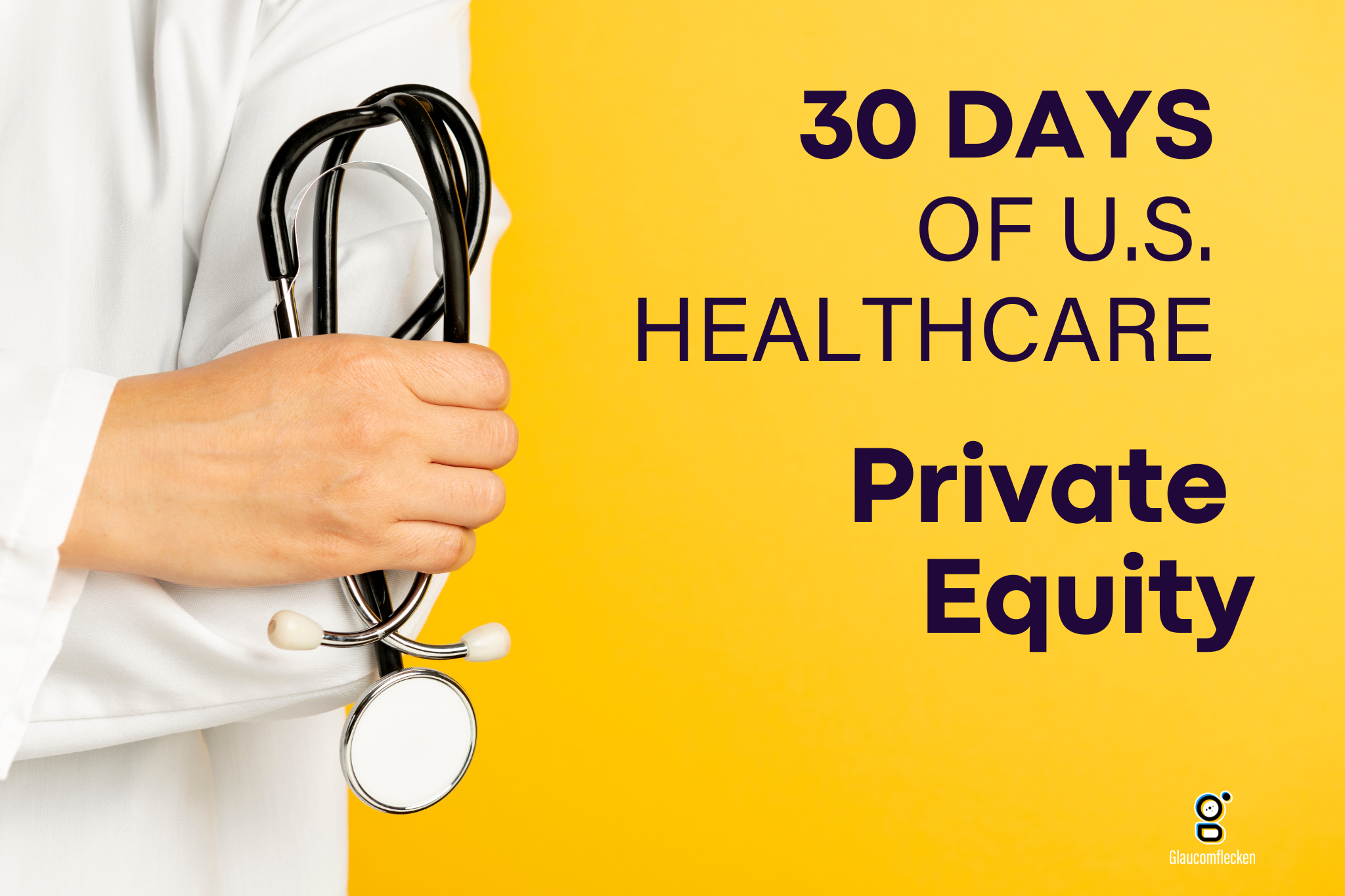Private equity firms buy hospitals to ostensibly improve operations and finances, but their changes lead to higher patient healthcare costs. Yet, physicians can no longer own hospitals.
This post is a part of our 30 Days of US Healthcare series. You can watch all the videos in this series on YouTube and learn more about the content behind the videos here.
ONE BIG NUMBER
Since 2021, private equity buyouts of healthcare facilities exceeded $200 billion.
WHAT IS PRIVATE EQUITY?
Private equity firms have investors (institutions or individuals) looking to buy other companies. Often, they look to get into a region with a starter healthcare practice. Then, they try to buy up more practices in the area to consolidate them. The idea is that through consolidation and management oversight, they can sell the company in short order (think 3 – 5 years) and make a lot of money.
BETTER MANAGEMENT SOUNDS GREAT!
Sure, streamlining healthcare sounds like it might help with a lot of issues. However, a problem was uncovered when the existing research on private equity (PE) in healthcare was reviewed.1
“No consistently beneficial impacts of PE ownership were identified”(Borsa 1).
Let’s look at the details behind that statement.1
🩺 While there are mixed results on the impact of private equity on the quality of care, the results tend toward the quality of care degrading following private equity ownership.
🩺 Private equity ownership of healthcare facilities increases patient healthcare costs, which was the one clear result across studies. Unsurprisingly, private equity firms spent millions lobbying to block the No Surprises Billing Act.2
🩺 No consistently positive outcomes were identified as a result of private equity ownership of healthcare centers.
GO DEEPER
Congress requested a Medicare Payment Advisory Commission to write a report about private equity and Medicare.
The American College of Physicians published a position statement on “Financial Profit in Medicine.”
The Brookings Institution published policy responses to private equity in healthcare.
1 Borsa, Alexander, et al. “Evaluating trends in private equity ownership and impacts on health outcomes, costs, and quality: systematic review.” BMJ 382 (2023).
2 Fuse Brown, Erin C. “Stalled Federal Efforts to End Surprise Billing—The Role of Private Equity.” New England Journal of Medicine 382, no. 13 (2020): 1189-91, https://doi.org/10.1056/NEJMp1916443.

